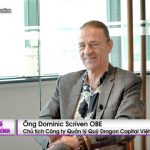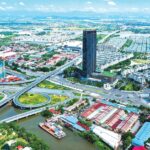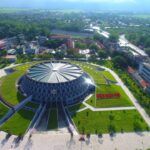On July 6, the Institute of Diplomacy, in collaboration with the China Foreign Affairs University, hosted a working group meeting within the framework of the ASEAN-China Institutes of Research Network. The theme of the gathering was “ASEAN-China Cooperation on Industrial and Supply Chains.”
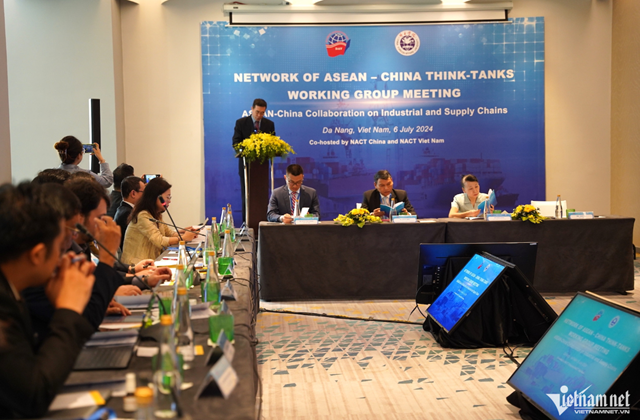
The working group meeting of the ASEAN-China Institutes of Research Network (NACT) on “ASEAN-China Cooperation on Industrial and Supply Chains” was held in Da Nang on July 6. Photo courtesy of Dieu Thuy
|
During the meeting, delegates analyzed emerging trends in the shift of industrial and supply chains. They then discussed the opportunities and challenges these trends present for ASEAN and China, offering several recommendations to further enhance cooperation between the two sides.
Dr. Vu Le Thai Hoang, Director of the Institute for Strategic Studies at the Institute of Diplomacy, noted that ASEAN has been China’s largest trading partner for four consecutive years since 2020.
ASEAN and China are at a crucial juncture, facing three significant challenges: the increasing fragmentation of the global economy, existing threats posed by climate change and environmental degradation, and the impact of emerging technologies such as artificial intelligence. However, the ASEAN-China partnership can seize opportunities by leveraging shared strengths in manufacturing, technology, and human resources.
Many businesses will come to Danang to explore investment opportunities
Dr. Vu Le Thai Hoang stated that, in this context, Vietnam has set clear priorities in economic development, focusing on attracting high-quality, efficient, and sustainable foreign direct investment (FDI). The country actively promotes projects in high technology and innovation…
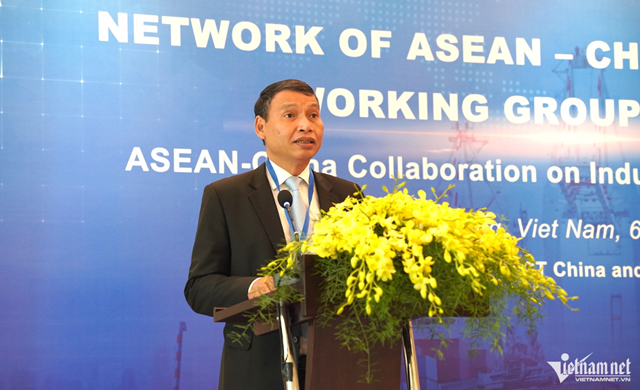
Vice Chairman of Danang People’s Committee, Ho Ky Minh. Photo courtesy of Dieu Thuy
|
“Vietnam also aims to promote Danang and many coastal cities as important transit points in the supply chain network between ASEAN and China,” said Dr. Vu Le Thai Hoang.
At the meeting, Ho Ky Minh, Vice Chairman of the Danang People’s Committee, shared that Danang has developed and implemented numerous policies to establish the city as a crucial hub in the Southeast Asian and Chinese supply chains.
Priority has been given to developing specific sectors, including information technology, electronics, and telecommunications linked to the digital economy; semiconductor industry, and artificial intelligence applications. Danang is mobilizing all resources to transform Lien Chieu Port into a gateway port for the supply chain of logistics services to ASEAN and Asia-Pacific countries.
Notably, Danang is the first locality in Vietnam authorized to establish a Free Trade Area to pilot policies on investment, trade, and logistics attraction. According to Mr. Minh, this is a significant driving force, creating favorable conditions for Danang to develop rapidly and become one of the prominent economic and social centers in the country and Southeast Asia.
Mr. Minh expressed his hope that the meeting would provide an opportunity for scholars to discuss and propose strategic solutions to facilitate the deeper engagement of relevant parties in the supply chain. He also anticipated that many partners and businesses would be attracted to explore investment and business cooperation opportunities in Danang following this gathering.
Dieu Thuy

